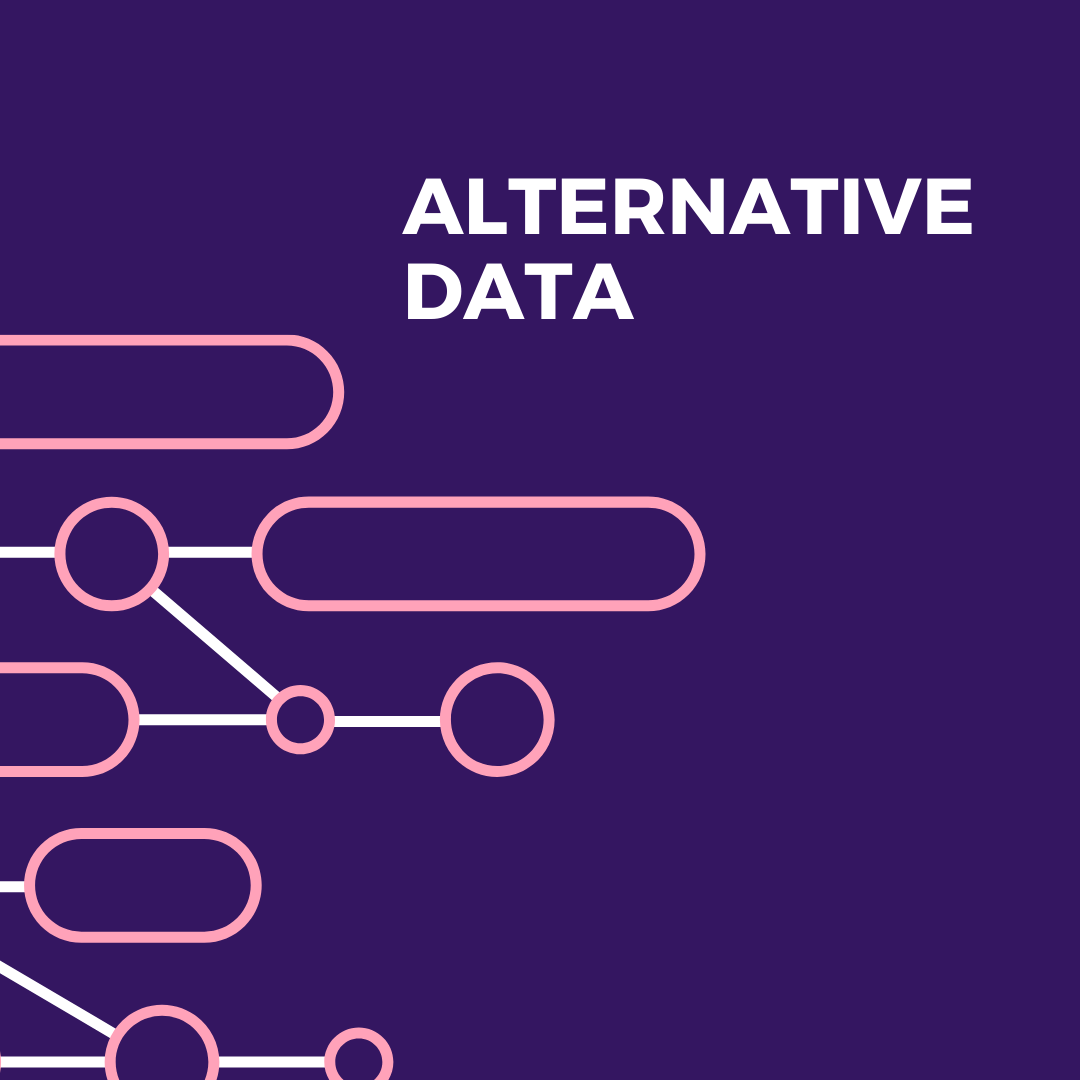With the promise of web 3.0, data privacy concerns in the European Union, and a shifting environment for businesses that rely on the digital landscape; it is imperative to leverage every data source possible. Insights like consumer sentiment, topical trends, and competitors’ strategies are a necessity.
Alternative data gives businesses just like yours the ability to analyze those key indicators and make data-backed decisions in an volatile dynamic environment.
Today you will be introduced to alternative data, learn how to procure it, and leverage the information.
Defining Alternative Data
Traditionally businesses would gather their intelligence based on consumer reports, press releases, legacy media networks, and journalists in their respective fields. There’s one key issue with information derived this way, it is yesterday’s news.
Alternative data is the ability to aggregate information via user behavior so that you know where trends are going and how to respond before the media ever releases the information.
Unknown to many, alternative data is a major market. Consider this…
“The global alternative data market is expected to grow from $1.70 billion to $2.41 billion at a compound annual growth rate (CAGR) of 41.4%. The change in growth trend is mainly due to the growing demand for alternative data sources owing to the growing interest in stock market trading. The market is expected to reach $8.98 billion in 2025 at a CAGR of 39%.”
- Source globalnewswire
In short, alternative data is your ability to know how people think, feel, and act upon those instincts as a business owner. As the statistics show, the pool of information available and the size of the market is expected to grow substantially. Now that you know what alternative data is, let’s dive into how to get it.
How Alternative Data Is Created
According to Caserta, 90% of all alternative data was generated in the past 2 years. There are three ways that alternative data is generated, and each one can correlate into a different use case. Most data it’s sourced from individuals, businesses, and machines.
Let’s break down the differences between these three sources for our data.
Machines
From smart homes to mobile phones, data in this category is created when machines send out signals and talk with one another. This would include GPS location data that can tell you the habits of your consumers and what they’re potentially interested in buying
Data from this source is easy to procure but can be hard to parse. Not every signal that comes from a machine is valuable information for businesses.
Businesses
Traditionally business data was created when a business released information or that information was made public. Alternative data is a derivative of other functions within the organization. Instead of scraping the actual business for the information, you can pay more attention to their vendors.
For example, you could generate data on a business by analyzing their credit card processor. This would tell you more about their sales pipeline without directly analyzing the organization itself.
Individuals
Regular data on individuals would come from social profiles in other areas of direct interest, however alternative data for individuals is when you analyze their behavior more so than their profile. As an example, you can gain insights into the products they review and how they respond to brands.
The challenge with individual data is that it’s hard to aggregate it for individual profiles and group it together into a structured form that benefits your organization.
Now let’s focus more on how to gather the data that we just discussed.
Where To Get Alternative Data
The first thing to understand is that in order to aggregate data from the Internet you have to begin with web scraping or manual collection. Obviously, if you try to manually procure data it can take forever and is subject to human error.
Another possibility you should consider is whether you do the web scraping in-house or outsource it. Let’s take a look at these two options and see which one best fits your business model.
In-House Web Scraping
A lot of companies think that they can hire a team of developers to create a script that will properly scrape a particular web asset, while this is true it does not paint the entire picture. You have to understand that web properties are always changing, and your script will not last forever.
Most web scraping applications are coded in Python.
You will need an in-house team of developers, system administrators, and data analysts to correctly structure the alternative data that you procure and constantly update your script.
This option is fine if you have a CTO that is comfortable leading a team of data analysts on the regular basis to aggregate data running various scripts that must be changed when web assets shift. You also must factor in those businesses do not like to be scraped and you must change your user agents.
Outsourced Web Scraping
There are plenty of ready-to-use, customizable cloud-based web scraping tools available for a variety of business sizes. Companies such as Octoparse can build a custom Python script for you and set it up on their own servers to aggregate the maximum amount of data.
Web scraping companies are experts at working around user agent blocking which slow down traditional in-house teams because they are not constantly adapting to platforms.
For small startups, outsourcing is the best way to go because they already have premade scripts that work well for a variety of web assets that you are probably already thinking about gathering alternative data from. The entry-level costs for ready-made scripts are economically friendly for small businesses.
ProxyEmpire + Alternative Data
To effectively create a data pipeline, you need a large proxy pool that can act as a connector for the various requests you make while web scraping. This is a utility required for in-house or outsourced data-mining efforts. ProxyEmpire provides over 1000+ users with residential & mobile proxies.
Some of the largest platforms for alternative data like Twitter and Glassdoor readily block traditional data center proxies. They have an objective to stop scraping on their websites.
That is why CTOs are turning to residential and mobile proxies that are sourced from actual peer devices. What this does is allow you to mask your requests as a variety of real users rather than identify yourself as a bot trying to use up the bandwidth of a platform.
You can test it for yourself by signing up for the ProxyEmpire trial which gains you 100MB of residential bandwidth and 50MB of mobile bandwidth after a small activation fee.
Conclusion
Alternative data is here to stay and can only increase in size as the metaverse catches on. User interactions are going to be a paramount indicator for businesses to adjust their KPIs and
meet their targeted goals.
If you have any questions about alternative data and how ProxyEmpire can help, please feel free to contact us in a live chat located at the bottom right-hand corner of the screen.




















